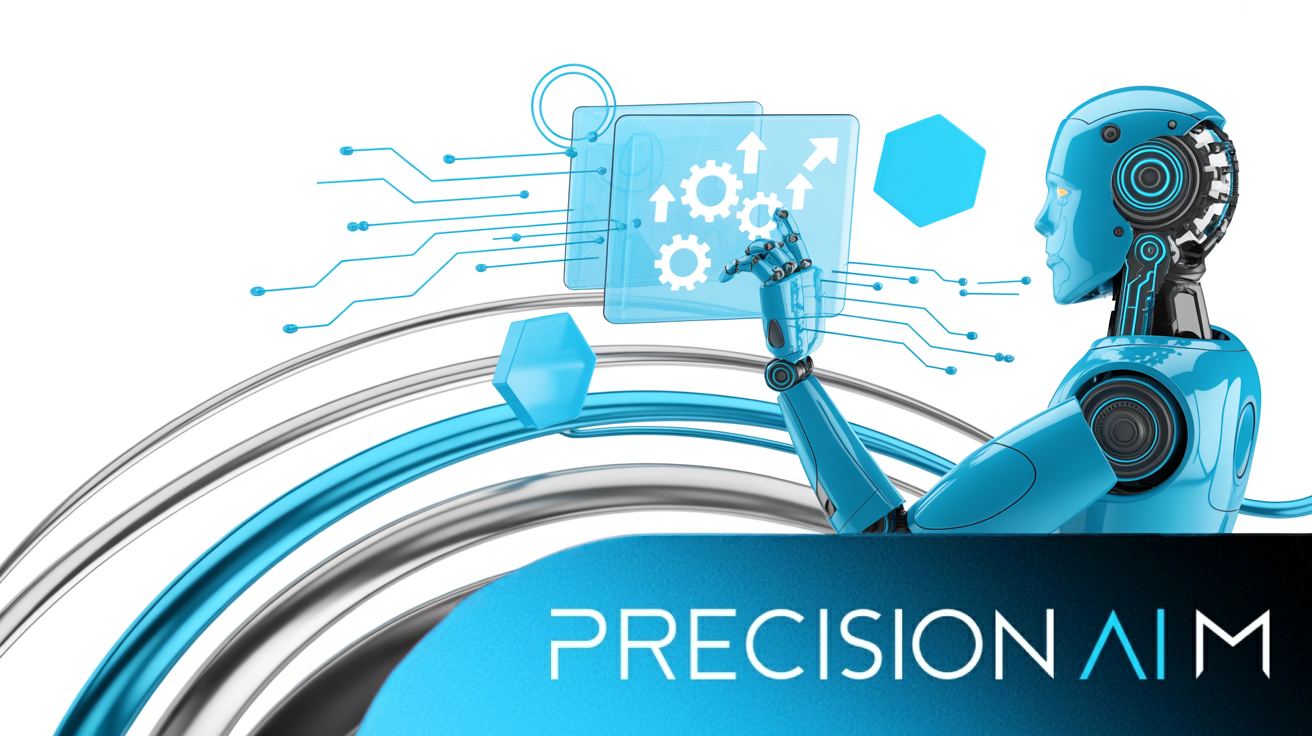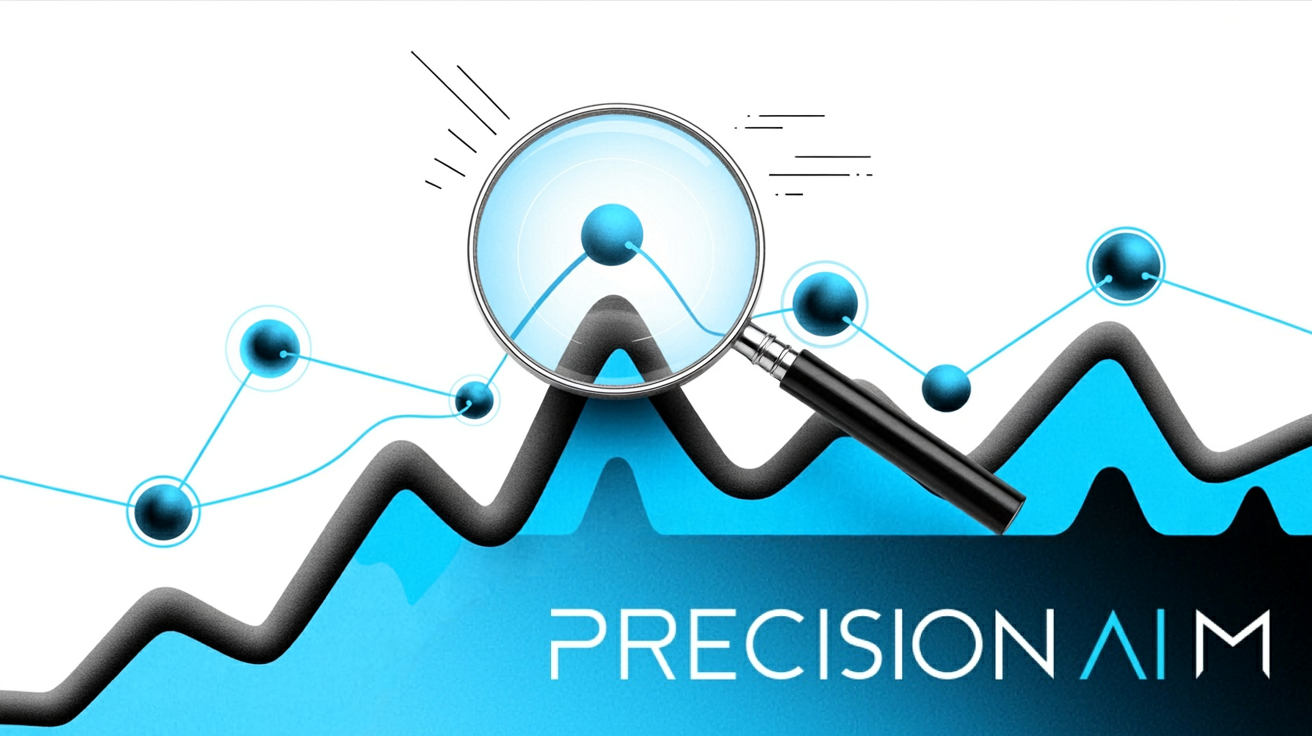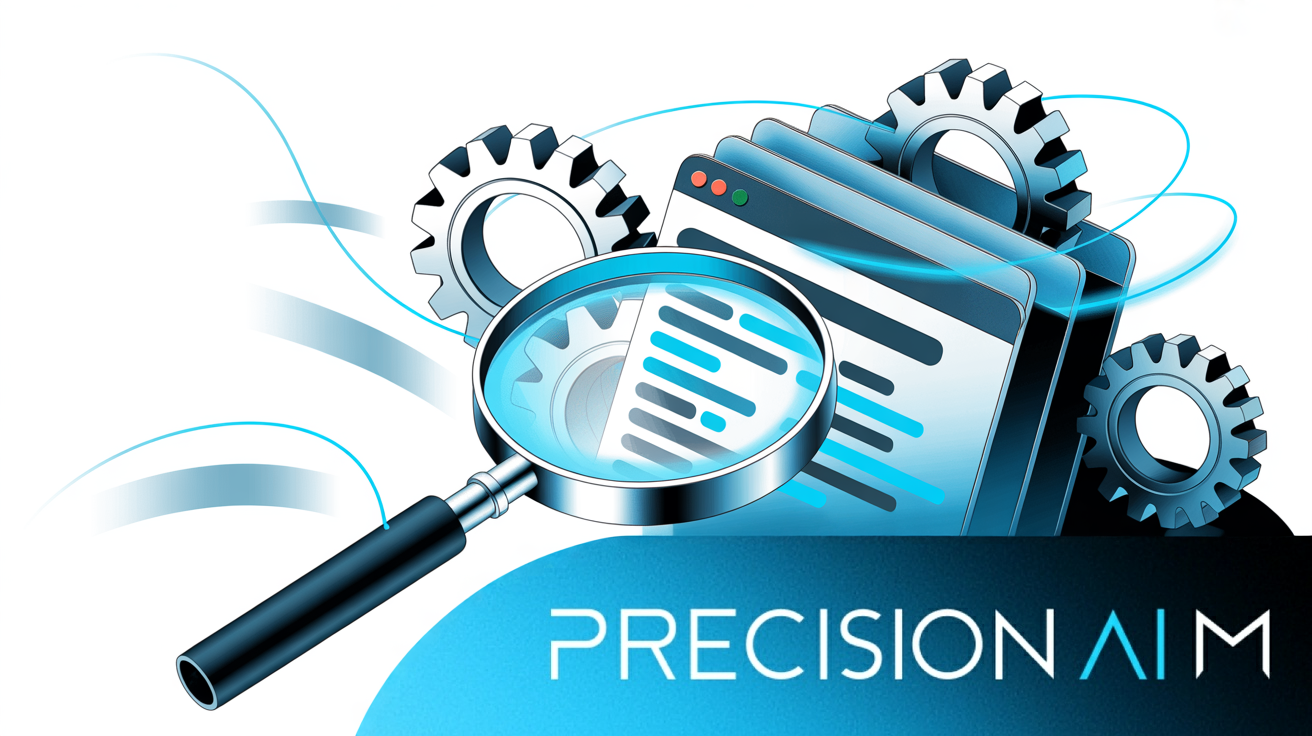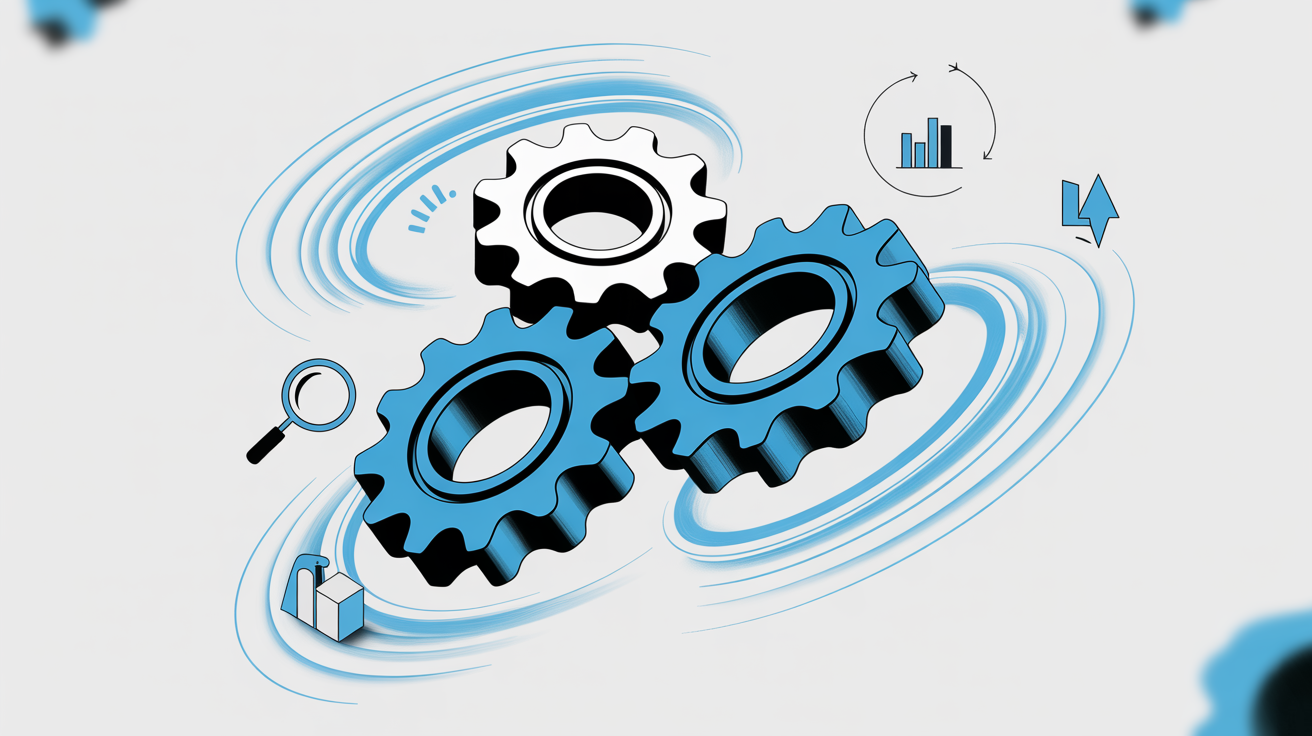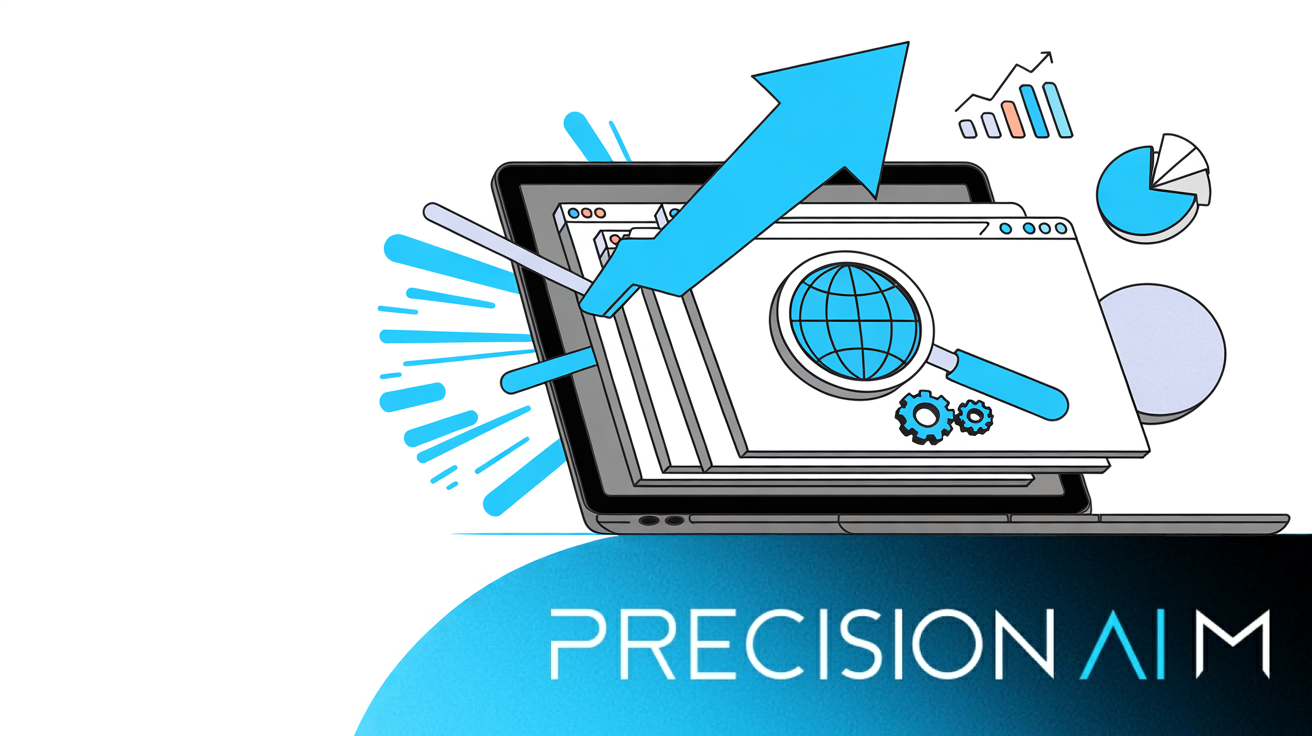SEO management has always demanded constant attention, but keeping up with search engine changes and technical fixes can drain your team’s time fast.
I’ve seen firsthand how traditional tools leave marketers stuck with manual tasks, scattered workflows, and missed opportunities. If you’re frustrated by slow updates or repetitive work, you’re not alone.
This article breaks down what AI powered SEO agents actually do, how they work, and why agentic architecture is changing the game. I’ll walk you through the core technologies—like large language models and persistent memory—and show how they enable real-time optimisation, automated content creation, and seamless integration with analytics and publishing platforms.
You’ll get clear comparisons between agentic AI and classic SEO tools, real-world examples from enterprise and small business, and practical tips for choosing the right platform. By the end, you’ll know how these agents can scale your SEO, save costs, and keep your site competitive—plus what risks and best practices to watch for.
What are AI powered SEO agents?
Definition and Core Principles
So, what are AI powered SEO agents, and why are they causing so much buzz? In short, they’re autonomous software agents that use artificial intelligence—especially large language models (LLMs) and agentic architectures—to manage and optimise SEO strategies across your website, all with minimal human intervention.
The real shift comes from agentic AI architecture. Instead of just ticking off a list of programmed steps, these agents interpret complex signals—think ranking changes, patterns in user behaviour, and evolving search intent. They set goals, continuously improve strategies, and execute tailored optimisation actions. For instance, they might notice your rankings dropping, then dig into emerging keyword trends or even fix technical issues like broken links or deploy new schema.
A key ingredient is persistent memory. Advanced SEO agents keep a record of campaign history, content strategies, and user preferences in scalable databases or semantic vector stores. This means when a page’s ranking starts slipping, the agent consults previous performance data and targets updates more intelligently, rather than repeating the same actions.
Here’s where it gets even more interesting: continuous learning. With machine learning, these agents analyse their own results and adjust to new search engine algorithms, shifting user patterns, and competitor activity. If a content refresh causes traffic to dip, the agent investigates why and refines its strategy—building a genuinely resilient SEO approach.

Core Enabling Technologies
Let’s break down the tech that makes it all possible:
- Large Language Models (LLMs)
They handle keyword research, analyse content, rewrite meta descriptions, and identify new SEO opportunities using current trends. - Persistent Memory Systems
Store every action and result, helping agents avoid repetitive work and personalise their optimisation moves for maximum impact. - API Integrations
Agents connect with platforms like Google Search Console, analytics, and CMS tools. That way, they automate audits, push updates, and publish content—such as SurferSEO’s integration with WordPress, which led to a 38% reduction in manual SEO work for SaaS teams.
Real-World Impact
Big businesses aren’t wasting time adopting these technologies. For example, in Q2 2024, one Fortune 500 retailer used custom agents powered by LLMs and persistent memory to optimise two million product pages. The payoff? A 15% increase in indexed pages and a 12% boost in non-branded search performance.
Switching from static tools to agentic AI does more than speed things up—it transforms how SEO teams scale, strategise, and compete.

So, how does this compare to the usual manual approach? Let’s dig into that next...
How do AI powered SEO agents differ from traditional SEO tools?
Traditional SEO Tools vs. Agentic AI Workflows
You know those classic SEO tools—rank tracking, backlink analysis, keyword research? They’re great at collecting data, pointing out issues, and suggesting keywords.
But here’s the rub: the heavy lifting still falls to you. Teams have to interpret reports, prioritise fixes, and manually rewrite content. Every core task sits siloed in separate departments or software. Coordination gets messy, workflow slows to a crawl, and valuable insights sometimes slip through the cracks.
That’s where agentic AI workflows step in and change the game. These AI powered SEO agents don’t just watch and report—they take action, instantly. Autonomous agents spot problems, rewrite metadata, fix technical errors, and adapt your keyword strategies in real time.
With persistent memory, they recall campaign history. Every adjustment reflects what worked before—there’s no mindless repetition. Manual updates fade out, replaced by real-time adaptation and nimble changes as new data comes in.
Think about this: agentic autonomy means continual, self-driven learning. The system keeps improving, quickly adjusting to what’s happening now, and it does all this without waiting for human approval.
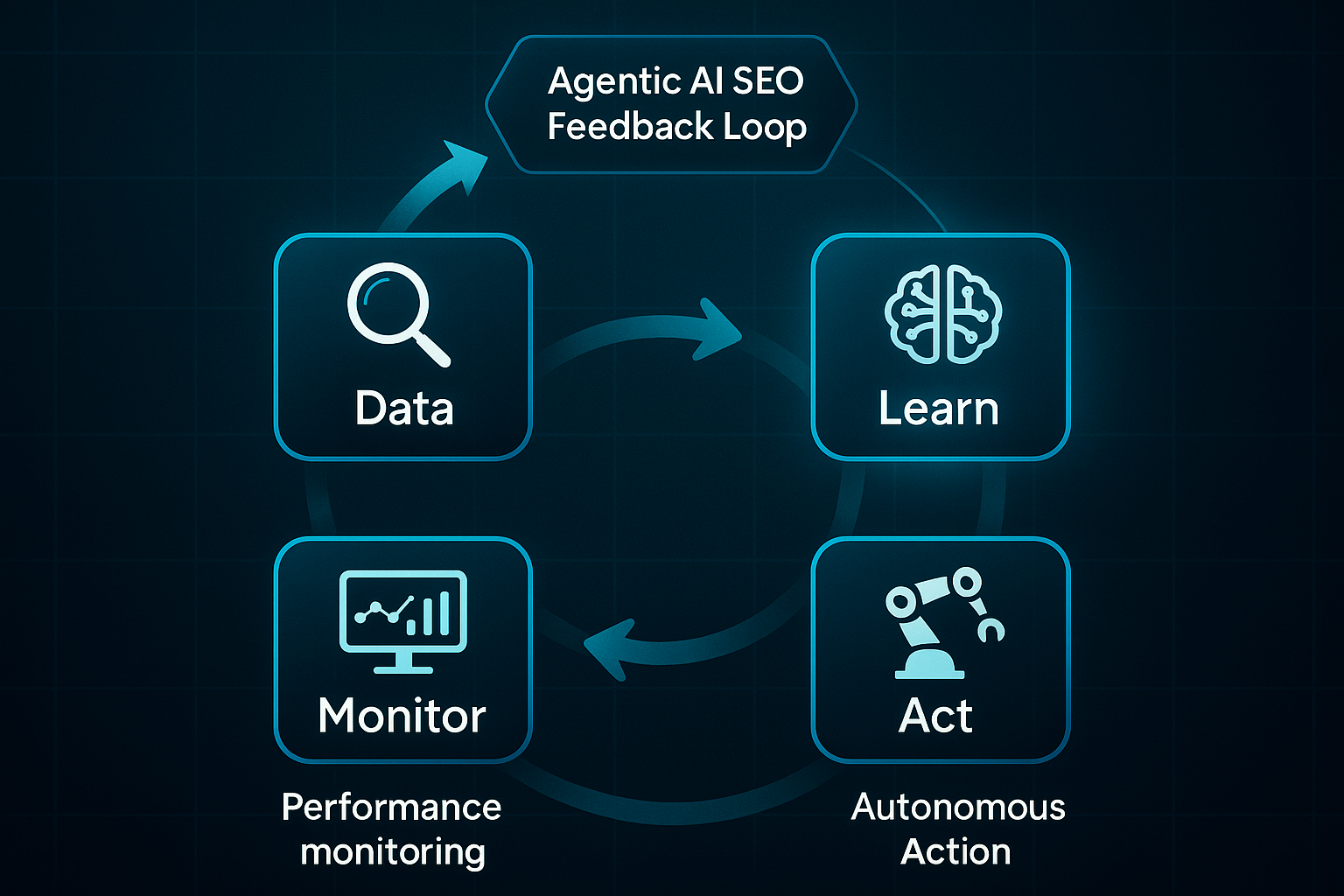
Examples of Market Approaches
So, how does all this actually show up in the marketplace? There are two main flavours.
Agency-managed platforms (like SEOSwarm) offer a hands-off solution. They handle everything—strategy, content, analytics—managing end-to-end campaigns once you’re onboarded. You get super-optimised SEO without the operational headache.

This Is the Smartest Way to Use AI for Marketing in 2025
Alternatively, the DIY agentic model puts you in control. These platforms automate targeted tasks, like content tweaks or site audits, but leave strategic decisions to your team. That appeals to smaller groups chasing flexibility and a leaner cost structure.
But don’t be fooled—just because a tool uses AI, doesn’t make it agentic. Content generators or keyword plugins might automate one job, but without persistent memory and a joined-up workflow, there’s no seamless strategy.
Genuine agentic agents work as integrated, adaptive, fully managed campaigns. If your goal is set-and-forget optimisation, agency-managed is for you. Want autonomy and granular control? DIY agentic platforms fit the bill.
In the end, only agentic architecture truly delivers integrated, constantly evolving SEO management. And honestly, that’s a leap worth making.

AI-Powered
SEO Content Strategy
See the AI platform that's replacing entire content teams
(with better results).

Core functions and features of AI powered SEO agents
Autonomous SEO Workflow Capabilities
Ever wondered what it would look like if every step of your SEO process could be handled, end-to-end, by a single, intelligent system? That’s exactly what these AI powered SEO agents set out to do—they weave together keyword research, competitor tracking, campaign planning, content optimisation, publishing, and ongoing site maintenance, all in one fluid workflow.
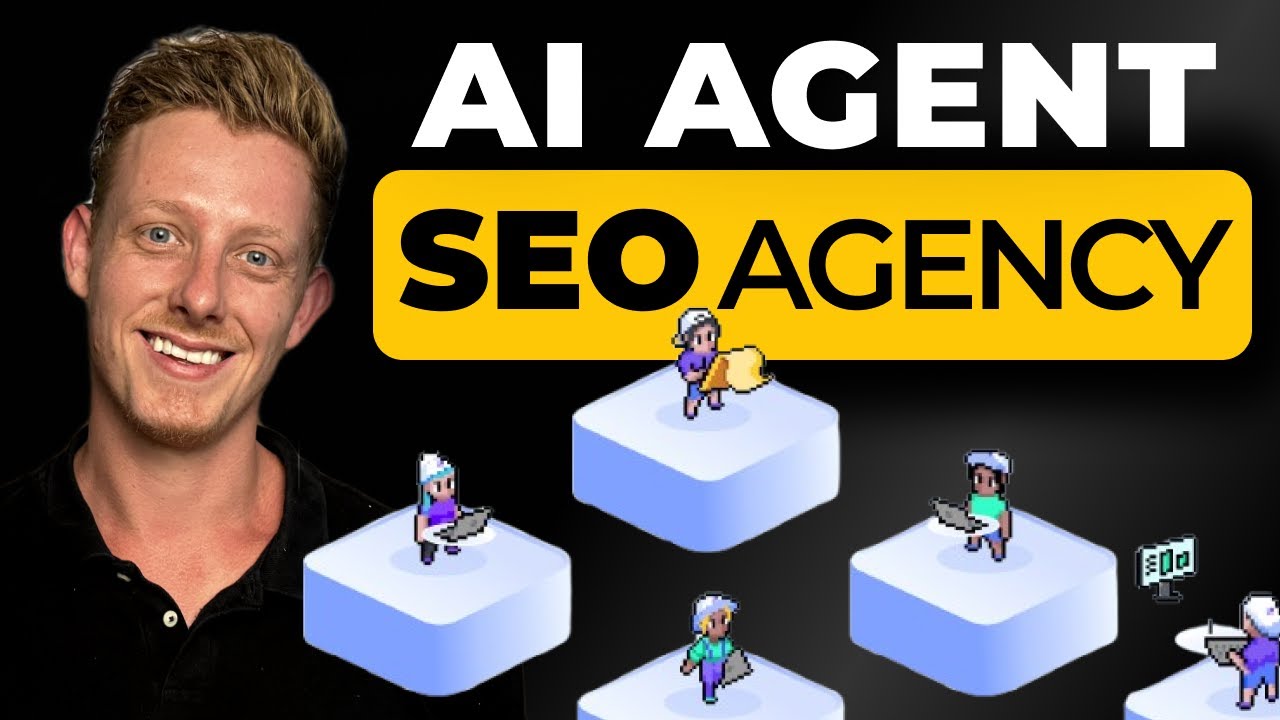
How I Automated an SEO Agency with 15 AI Agents (No-Code)
Instead of working on one-off tasks, these agents actively discover, cluster, and reorganise keywords in real time. So when the competitive landscape shifts, so does your strategy—instantly. There’s always a watchful eye on what your competitors are doing: agents map authority gaps, pinpoint content strengths and weaknesses across the industry, and use that data to steer your own campaigns.
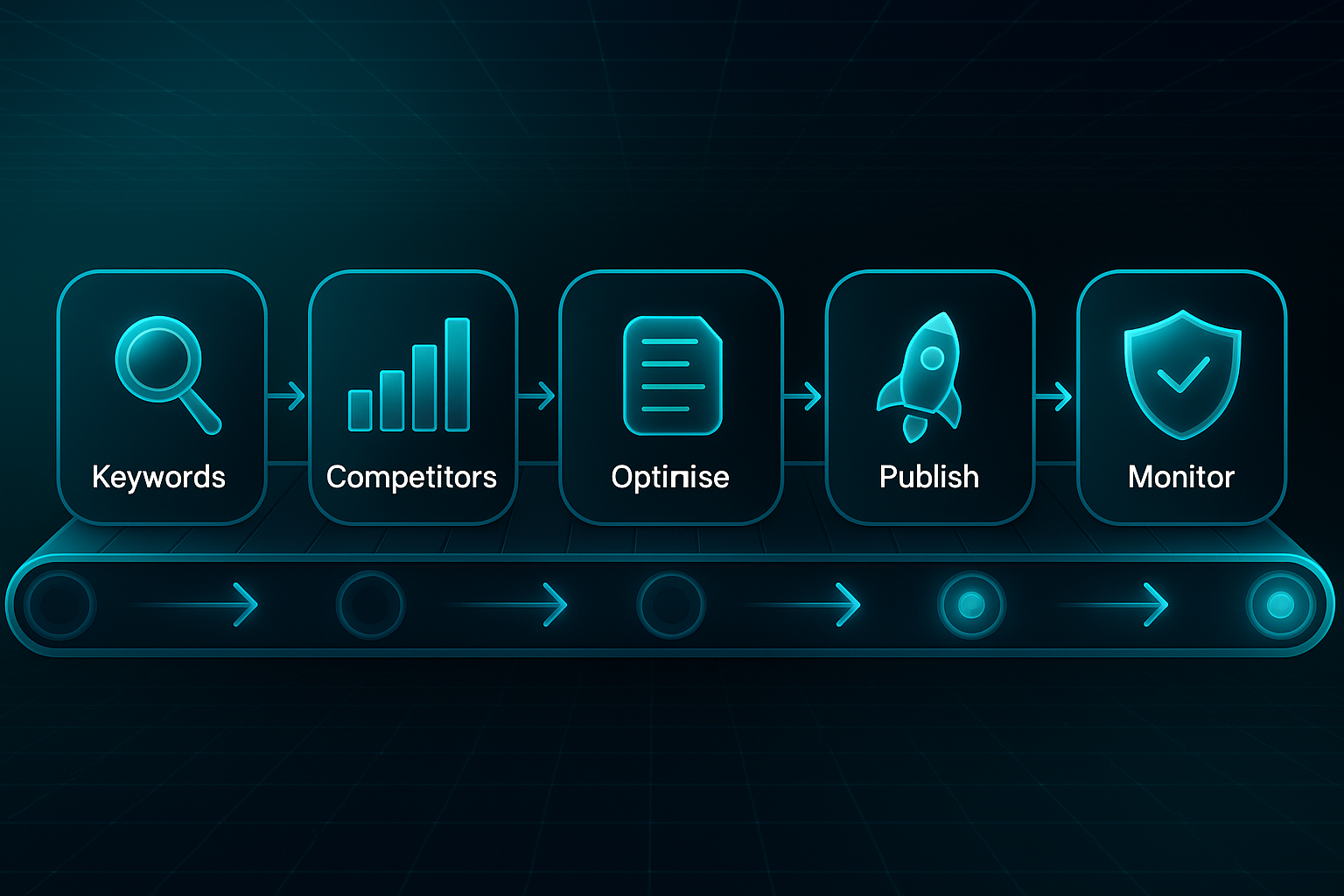
Every campaign is approached with data-driven precision, factoring in both your site’s history and live analytics to decide what moves to make next. It’s this continuous, agile style of execution that takes optimisation to a new level.

When it comes to content, large language models step in to craft SEO-rich articles, spot-on meta data, and supportive schema markup that boost your rankings. Internal linking is kept sharp, on-page SEO signals are refreshed, and thanks to integrated APIs, new or updated content gets published and indexed with hardly any delay.
But what about the upkeep? Here’s the thing—maintenance isn’t just another item on a to-do list. Agents relentlessly scan for technical issues, outdated content, or compliance problems, heading off trouble and rolling out improvements straight away, rather than just flagging the issues for someone else to fix.
Innovative Agentic Abilities
So what truly separates agentic SEO agents from the usual automation tools? Persistent memory changes the game. These agents remember past actions and results, so they can tailor each optimisation, avoiding repeated mistakes and focusing on continual gains.
They don’t just collect analytics data—they tap straight into it, reacting in real time as your rankings or engagement shift. Spotted a trend or dip in credibility? The agent analyses emerging topics, tracks competitive authority, and tweaks your content to keep you ahead—ensuring you’re always aligning with those crucial EEAT factors.
That real-time feedback loop is a game-changer. Agents adjust targeting or fix problems the second they arise, no human prompt required. It’s like having an SEO expert at the wheel, always learning, always refining—never letting things get stale.
Comparative Table: Agentic AI SEO Features vs. Basic Automation
| Feature | Agentic AI SEO Agent | Basic Automation Tool |
|---|---|---|
| Workflow Orchestration | Unified, automated management | Manual, single-task operation |
| Persistent Memory | Adapts using campaign history | No memory; repetitive actions |
| Content Generation | LLM-powered, SEO-rich writing | Simple templates; basic automation |
| Publishing & Indexing | API-integrated, autonomous updates | Manual or scheduled posting |
| Problem Correction | Detects and fixes issues automatically | Reports problems, needs human fix |
| Real-Time Analytics Integration | Adjusts instantly to new data | Manual follow-up required |
| Authority/Trend Analysis | Continuously researches and optimises for EEAT | Limited or static tracking |
Platform Examples and the Competitive Edge
Platforms such as Siteimprove.ai, Uniform, and Bolt.new really set themselves apart by offering full-stack automation, persistent learning, and real-time data adaptation. Their agentic approach delivers a highly scalable, continually optimised SEO presence—something that’s nearly impossible to match with legacy automation alone.
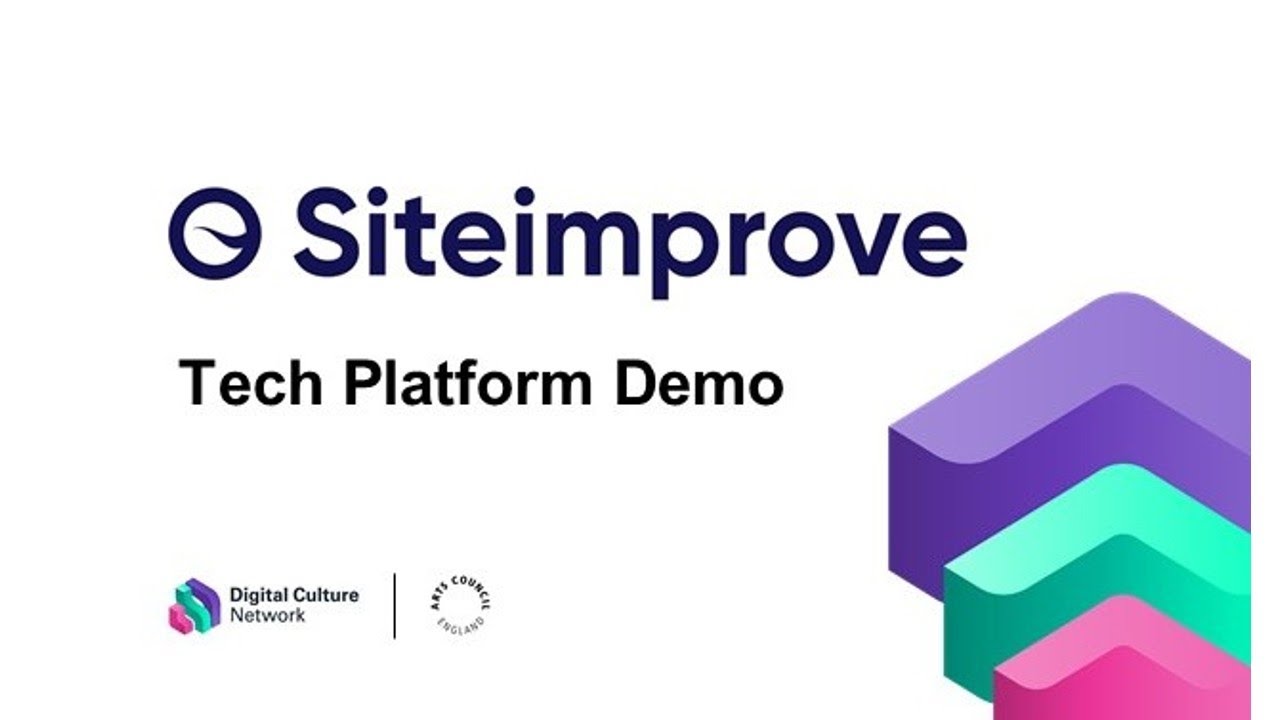
Tech platform demo - Siteimprove | Digital Culture Network
This is why businesses relying on these next-gen solutions see stronger results, with less day-to-day involvement. In a world where SEO never sits still, that edge really matters.
Use cases and business applications for AI powered SEO agents
Industry Use Cases
Let’s talk about enterprise giants. Companies flipping through tens of thousands of web pages simply can’t survive on manual SEO. Agentic AI platforms—think Siteimprove.ai—handle constant monitoring, make instantaneous ranking adjustments, manage compliance, and fix technical issues without a hitch.
Teams actually break free from mind-numbing updates. They get to watch page indexing and organic traffic climb, while their focus shifts towards the big strategic moves that matter.
By deploying AI agents in structured workflows to handle complex tasks like SEO audits, teams can significantly reduce manual workloads and pivot their resources toward higher-level strategic initiatives and analysis.
Small businesses feel the impact too. Time and manpower are precious, so agentic solutions save the day. Custom agents update blogs, tidy up technical SEO, and patch site tweaks nearly automatically.
It’s genuinely empowering for tiny teams. More visibility, less sweat. Tools like AgentGPT, Bolt.New, and easy workflow automation are cropping up everywhere, offering smaller businesses a real competitive bite.
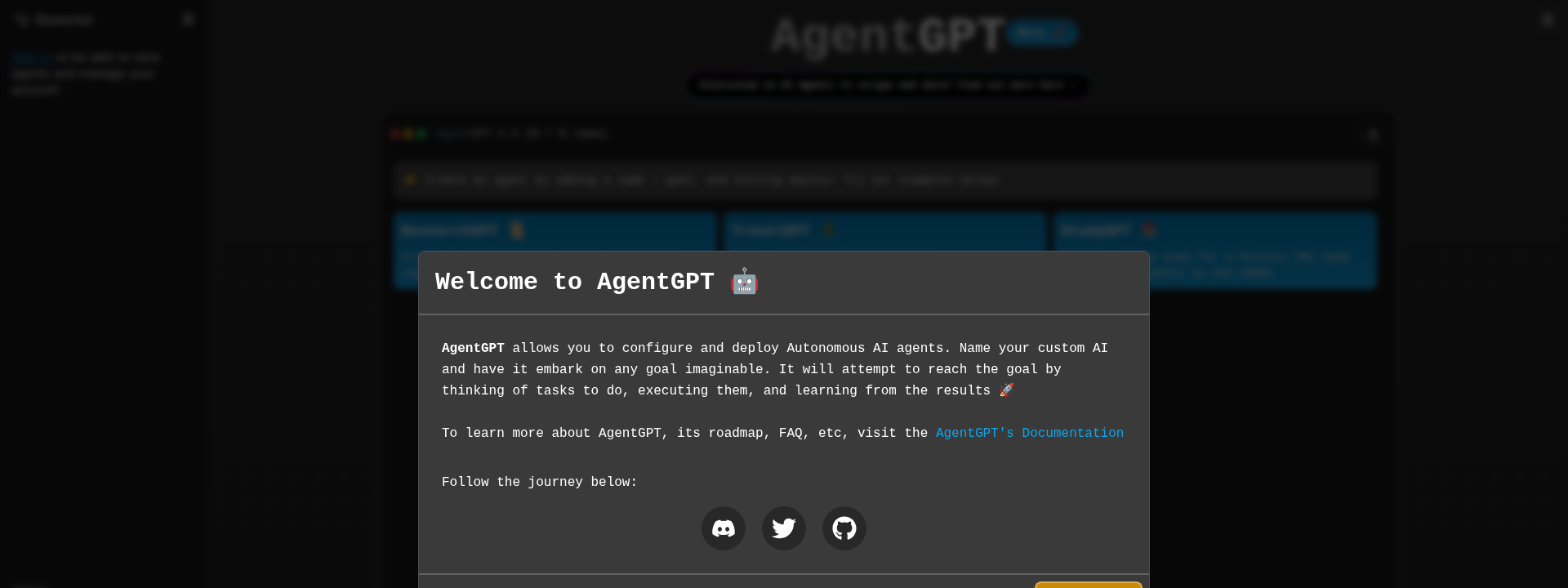
Source: agentgpt.reworkd.ai
Agencies aren't left out. Agentic AI lets them scale management, automate deep audits, refresh content, and run link-building campaigns across multiple clients, all at once.
With improved reports and higher capacity, agencies deliver high-touch service—minus the usual overload.
E-commerce sites with endless catalogues especially benefit. Agentic automation keeps product descriptions and schema fresh, fixes technical glitches, and adapts fast to search engine updates.
So rankings hold strong, conversions don’t slip, and even massive inventories stay optimised.
Media and news teams face a totally different challenge—speed. Agentic content intelligence powers rapid article updates, metadata tweaks, and keeps evergreen content current.
The trend is clear: creative teams are starting to build custom in-house tools, letting journalists focus on big stories while agents handle digital chores.
Implementation Scenarios
Fully managed agency models, like SEOSwarm, deliver agentic platforms from strategy to creation to ongoing upkeep. AI scales the output, humans ensure expert oversight, and operational headaches shrink.
Hybrid workflows blend the best of both worlds. AI covers repetitive tasks while humans guide messaging and creativity, producing context-rich results with maximum efficiency.
DIY and in-house solutions open doors for smart experimentation. Teams automate bulk audits, metadata tweaks, and anomaly detection, letting lean operations stay competitive and nimble—even on tight budgets.
It’s a new era—agentic SEO gives businesses, big or small, supercharged agility and game-changing scale.
Benefits of using AI powered SEO agents for businesses and marketers
Quality Enhancement and Consistency
Ever wish you could guarantee consistently optimised SEO across every page and campaign, without constant manual checks? That’s the power of AI powered SEO agents. These tools don’t just automate a few tweaks here or there—they orchestrate metadata, schema, internal linking, and sharpening of keyword strategies for you, from single landing pages up to sprawling digital estates.
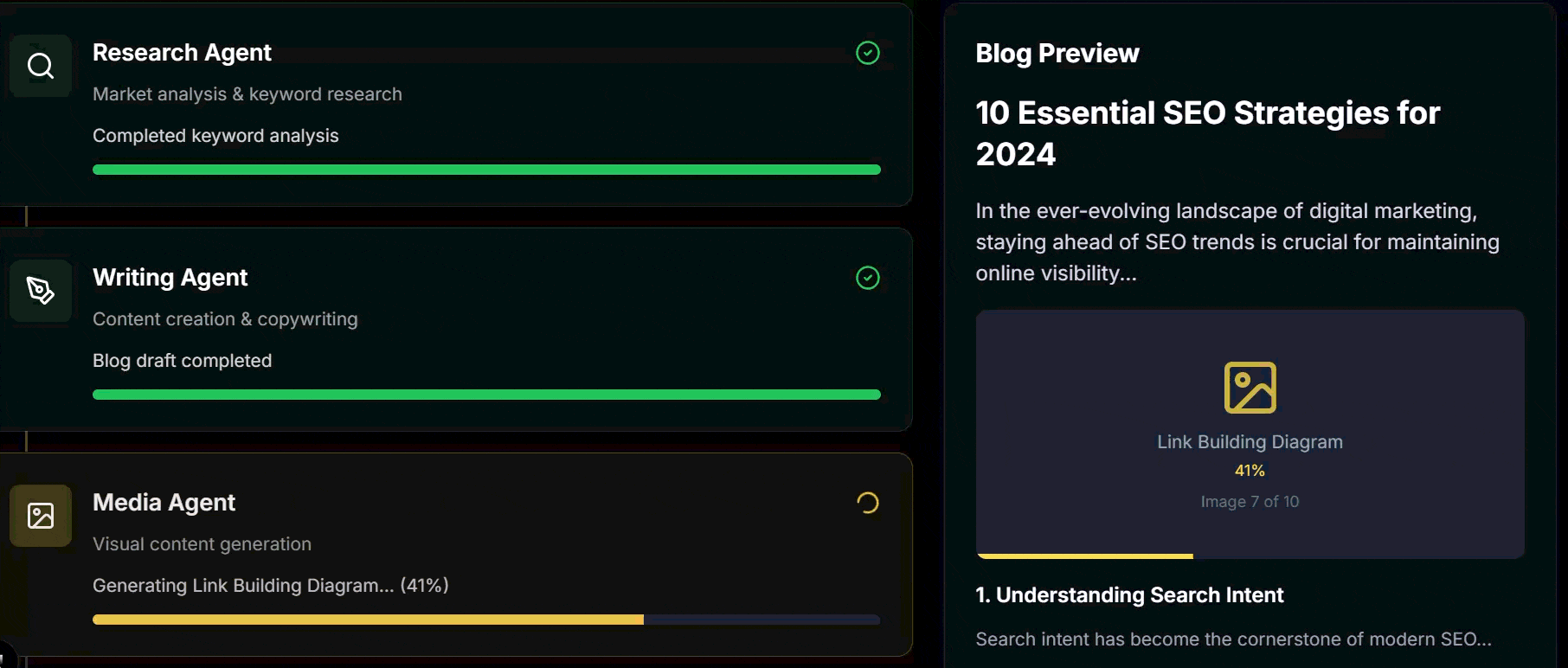
They draw from advanced memory and language models to keep everything in sync. That means automated alerts and persistent monitoring are built-in—so technical SEO issues get flagged and fixed on the fly. What does that achieve? It dramatically slashes human error and keeps tight editorial standards across your whole web presence.
And there’s more. With this sort of systematic quality control, best practices (including the all-important EEAT requirements) are applied everywhere—whether you’re in a sensitive sector like healthcare, finance, or any space where keeping up authority and compliance is crucial. Plus, those live feedback loops from agentic analytics mean your content is always improving, helping you stay visible even as the search environment evolves.
Scaling and Efficiency
Here’s where AI really shines: scalability. Need to handle thousands of pages, or oversee campaigns across several websites? Agentic platforms let you do that—no sweat. The tech takes care of batch content updates, on-page SEO fixes, and non-stop keyword discoveries without breaking a sweat, so even a small team can run projects that would normally need an army.
Some platforms go further, letting you launch entire, SEO-ready blog hubs or landing pages—sometimes in less than a minute. That means you’re not just keeping pace with major players, but levelling the field so small businesses and international operations can move fast without huge costs or complicated workflows. Everything’s optimised right out the gate.
Blog-in-one-minute
Add a fully SEO-optimised blog to your website with just 2 lines of code.
Learn more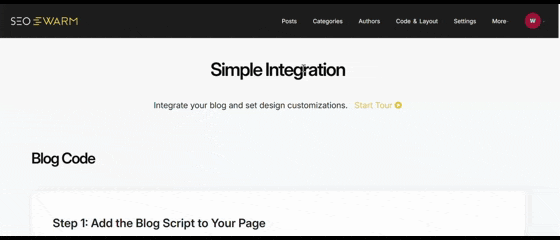
Cost, Time, and Strategic Advantages
There’s a practical upside to all this: operating costs drop, and routine SEO chores go on autopilot. Your team’s freed up to focus on growth, creativity, and campaigns that actually move the needle.
Managed agentic solutions—SEOSwarm is one to watch here—offer steady oversight, transparent reporting, and instant response to any search shifts or technical snags. You’re not stuck battling bottlenecks. Instead, you react quickly to changes, protect critical rankings, and push your brand forward even as algorithms change or new competitors emerge. The result? Sustained organic growth, strong visibility, and a competitive edge that keeps paying off.
Limitations, challenges, and risks of AI powered SEO agents
Current Limitations and Pain Points
Let’s be honest—agentic AI platforms can supercharge your SEO, but they’re not without drawbacks. One of the biggest? Generic or unoriginal content. When agents recycle material, your site’s Expertise, Experience, Authoritativeness, Trustworthiness (EEAT) takes a hit, and rankings can drop.
These systems often pick up phrases or concepts already everywhere online. That leaves you at risk of posting repetitive, even duplicate, content—blurring your brand’s uniqueness, especially in crowded sectors. Fighting to keep a distinctive voice is tricky because language models often gravitate towards bland, cookie-cutter writing, even if you brief them carefully.
Technical challenges play their part too. Linking agents with your CMS or analytics isn’t always smooth sailing. Integration hiccups or misconfigurations can trigger data privacy scares or workflow chaos—nothing you want slipping under the radar.
Algorithm changes add another twist. Since these platforms rely on older data, major Google updates can leave fully automated sites lagging behind until someone steps in to steer things back on course.
Risks of Over-Automation and Control Loss
Letting AI run the show seems smart, but it can go too far. Automated workflows may overlook accessibility or compliance standards, potentially exposing you to violations or inaccessible content.
And there’s the “black box” problem—sometimes even your own team won’t know why an agent acted as it did. That makes troubleshooting and accountability a challenge. Plus, if people hand off too much, creativity and agility can slip. The best results come from automation plus regular human review—it’s really about balance.
Effective AI governance in SEO requires a careful balance between leveraging the power of automation and maintaining essential human oversight.
Mitigation Strategies and Emerging Best Practices
How do organisations keep the benefits while steering clear of pitfalls? Editorial oversight, brand checks, and compliance reviews are key. Let the agents handle bulk tasks, but reserve human judgement for final review and critical content.
Maintaining transparent audit trails and encouraging strong teamwork between tech and editorial teams keeps accountability and adaptability high. That way, you get reliable, adaptable SEO—without losing your brand’s unique spark.
How to implement AI powered SEO agents in your SEO strategy
Getting Started and Integration Steps
Thinking of bringing AI powered SEO agents into your strategy? It takes real planning, not just tossing a new tool into the mix.
Start by setting clear business and SEO objectives. Are you aiming for better rankings, automating technical SEO, speeding up content publishing, or managing keywords more efficiently? Set measurable goals, like increasing organic traffic or halving the time needed to launch new material. These outcomes shape your agentic workflows for proper business impact.
Next, choose your operating model. If you’re after minimal input, fully managed agency platforms—SEOSwarm or Seer Interactive—cover everything from strategy to integration with your CMS, analytics, and internal protocols. They keep an eye on quality and compliance so you don’t have to. Prefer more control? DIY or in-house platforms like AgentGPT or Uniform let your team automate specific SEO tasks and manage setup and strategy on your own. This suits businesses with a technical edge and a hands-on approach.
So, what does onboarding look like? Agency models handle integration with systems like Google Search Console and GA4, set up CMS permissions, connect APIs, and review your brand guidelines. Security comes first; ensure privacy frameworks—think GDPR, CCPA—and explicit data sharing rules are nailed down before sharing credentials. DIY platforms mean rolling up your sleeves—installing plugins, linking APIs, building persistent memory, and configuring permissions. Whichever route you choose, solid data management remains non-negotiable.

Develop a robust campaign strategy with clear benchmarks: organic growth, ranking improvements, and faster indexing. Schedule regular review cycles and sign-off steps, aligning every agentic action with your business priorities.
Once integrated workflows launch—keyword research, optimisation, content creation, publishing—watch performance closely. Dashboards catch hiccups and let you adjust logic quickly, keeping things on track.
Continuous feedback is your secret weapon. Set routines for analytics, audits, and prompt updates, so your platform stays sharp and nimble. Agency platforms like SEOSwarm routinely provide audits and strategy reviews, while DIY options offer dashboard tracking for quick adjustments. That loop of feedback and adaptation is key to long-term success with agentic SEO.
Leading AI powered SEO agent platforms and services
SEOSwarm
Let’s start with SEOSwarm—managed by Precision AI Marketing. It’s an agency-run solution offering end-to-end SEO campaigns for organisations that want to leave the heavy lifting to experts.
What makes SEOSwarm different? It fuses agentic AI teams with close human oversight, ensuring every step, from research to technical optimisation and compliance checks, stays sharp. The agency covers it all: campaign planning, blog publishing, and ongoing site maintenance.
For businesses wanting fully managed SEO, it’s compelling. SEOSwarm brings advanced features like direct API publishing and Google Search Console integrations for rapid indexing. Strategic internal and external linking boosts authority and traffic, while ongoing maintenance and EEAT-driven research keep sites competitive and compliant.
And there’s something clever: the optional blog-in-one-minute integration helps you deploy SEO blog hubs in seconds using just two lines of code. Schema markup and guided editing are built-in, so launching high-quality content is fast and fuss-free. This subscription suits websites that need to ramp up their blog output rapidly.
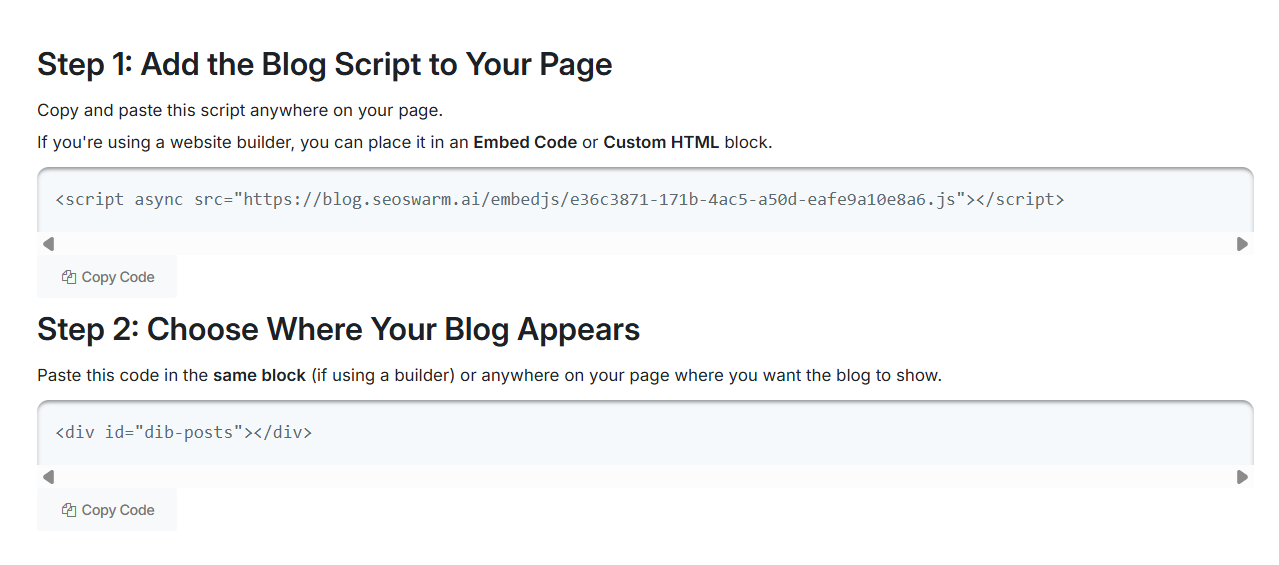
SEOSwarm’s best for enterprises, agencies, or brands with complex sites, limited in-house SEO expertise, or a need for consistent quality at scale. Whether you manage multiple sites, scale campaigns quickly, or demand uniform optimisation across lots of content—SEOSwarm delivers.
Notable Alternative Agentic and AI SEO Platforms
Of course, SEOSwarm isn’t your only choice. Platforms like SurferAI (from Surfer SEO) empower marketers and agencies to run real-time SEO analysis and AI content creation. MarketMuse is great for strategy-first content planning and topical authority. Jasper targets high-volume writing, keeping brand voice intact for content marketers, and often connects with optimisation tools for complete coverage.

MarketMuse Tutorial for Newbies | Content Planning & Optimization Software Demo
These alternatives focus on DIY control, more granular flexibility, or content scalability, depending on business size and goals.
Comparative Summary Table
| Platform | Management Style | Best For | Distinguishing Features |
|---|---|---|---|
| SEOSwarm | Agency-managed | Enterprises, agencies, complex brands | End-to-end campaign, rapid indexing, expert oversight, blog integration |
| SurferAI | DIY SaaS | Marketers, small agencies | Real-time analysis, user-driven campaigns, AI content |
| MarketMuse | Hybrid/self-serve | Content teams, publishers | Content strategy, authority mapping, deep research |
| Jasper | DIY SaaS | Content marketers, SMBs | High-volume writing, LLM brand voice, bulk output |
Deciding Which Platform Fits Your Needs
So, which fits best? If you manage complex sites and want minimal effort, the agency-managed route like SEOSwarm delivers. Smaller teams can pick hybrid or DIY SaaS options for direct control and flexible costs.
Choose based on your site’s scale, in-house SEO expertise, and how much strategic oversight you need.
ROI and budget impacts of adopting AI powered SEO agents
Calculating Return on Investment and Cost Savings
So, what’s the financial story behind switching to AI powered SEO agents? The first thing businesses notice is the dramatic cut in manual labour. Agentic workflows don’t just automate a handful of tasks—they genuinely reshape how teams operate, allowing energy to shift from routine upkeep towards big-picture strategy.
Small and medium-sized businesses especially see the difference. With less strain on payroll, those limited resources stretch further as essential SEO jobs get automated. Instead of hours spent updating pages, teams can refocus on growth and creative work.
But here’s another angle: campaigns and pages hit the market in record time. This speed helps businesses stay nimble, snatch up new traffic opportunities, and keep competitors on their toes.
Budgeting also gets reimagined. Rather than endless agency retainers or ballooning internal staffing, costs shift to technology subscriptions or contracts for managed agentic services. That means spending is predictable—and scalable—no matter how the website grows.
Platform Pricing Models and Tips
- SEOSwarm pricing structure
Covers a full service, but rates aren’t public; you’ll need to enquire directly for a custom contract. - 'Blog-in-one-minute' subscription
Billed separately from SEOSwarm’s main offer, aimed at instant blog launch; pricing details only through provider. - Pricing evaluation tips
Weigh factors like management style, onboarding, analytics, projected ROI, and support based on your team’s size.
Best Practices for Budget Planning and ROI Maximisation
- Clarify service coverage
Ensure you know what’s included—onboarding, analytics, types of optimisation, and support terms. - Compare support models
Agency-managed platforms offer direct help, while DIY or SaaS options lean on basic ticket-based support. - Leverage ongoing feedback
Let analytics and audits shape campaigns, cutting wasted effort and ramping up your return. - Always request custom quotes
Always get direct pricing info for the most accurate comparison—public rates can mislead.
Performance measurement and ongoing maintenance with AI powered SEO agents
Key Metrics and Reporting Approaches
Unified dashboards tie all your SEO data together, tracking organic traffic growth, site health (error rates, indexability, Core Web Vitals), keyword rankings, and engagement metrics like click-through rates and time on site. SISTRIX and ContentKing are popular choices in the UK and Europe for reporting.
But monitoring is just the start. Predictive analytics and anomaly detection instantly flag ranking drops, technical hiccups, or engagement shifts, sometimes triggering auto-fixes. SEOSwarm, for instance, constantly checks for issues—fixing routine problems itself and escalating the rest—minimising downtime and compliance hassle.
Real-time Alerts and Automated Responses
Sudden issues? The best agentic platforms react straight away. Alerts fly in for deindexing, broken links, or slowdowns. Quick problems are tackled automatically; serious ones go straight to an expert. That way, you never miss vital optimisation windows.
Ongoing Content Refresh and Competitor Monitoring
AI agents set up regular content audits and watch for old or underperforming pages. When performance dips or algorithms change, they can rewrite content, update metadata, or fix schema—keeping pages compliant and visible.
Competitor tracking runs alongside. With tools like SISTRIX, your agent responds quickly if a rival outranks you, recommending or even making changes so your site keeps its edge.
Continuous Improvement: Strategic Recommendations and KPI Progress
Persistent memory and audit trails fuel ongoing improvement. Every tweak is tied to results, driving measurable boosts to organic traffic and authority.
With these routines humming along, agentic SEO stays sharp—adapting to whatever search or competition throws at you next.
Ethical and strategic considerations for using AI powered SEO agents
Maintaining Oversight and Brand Integrity
Leaving everything to AI is risky business. Platforms like SEOSwarm keep human review baked in, making sure each piece meets accuracy, legal compliance and brand standards before publishing.
Importance of Human Review and Approval
Why does final sign-off matter? Without it, errors or misleading claims slip through. Expert checks deliver the explainability and auditability that the EU AI Act demands.
Transparency, Auditability, and Reporting
Agentic platforms should record every major SEO change—keyword shifts, schema updates—building audit trails for accountability and to meet UK and EU rules, just in case scrutiny comes knocking.
Ensuring Compliance and Regulatory Alignment
Technical and legal teams pair up, keeping tabs on privacy, advertising, and content rules. Ongoing safeguards catch prohibited or misleading statements, defending reputation.
Preserving Brand Voice and Ethical Standards
Detailed brand guidelines and editorial audits keep your message distinctive and boost ethical standards, preventing generic AI output from drowning out your unique voice.
Strategic Integration for Long-Term Trust
For lasting trust, start with transparency and adapt policies proactively. When you run SEO ethically and keep communication open, agentic automation becomes a strategic asset—reassuring stakeholders and customers with every step.
A core principle for leveraging AI in marketing is recognizing that the technology, while fast and eager, often requires human supervision to guide its implementation and ensure responsible outcomes.
The future of AI powered SEO agents
Emerging Trends and Platform Developments
2024 is turning out to be the year where AI powered SEO agents truly step up—from simple helpers to strategic automation engines woven into digital marketing. What does that look like in practice?
- Convergence of Managed Services and Instant AI Deployment
Platforms like SEObot and Surfer AI Teams let agencies or brands launch SEO instantly or opt for managed strategies, blending autonomy with expert oversight. - Advances in Agent Learning and Predictive Analytics
Jasper AI and Frase roll out real-time updates—keywords, topic picks, and ranking tweaks—using adaptive learning and live competitor intelligence released in 2024. - Expansion into Multimedia and Cross-Channel SEO
Jasper’s Multimedia SEO Suite now generates video, image, and podcast metadata. Surfer SEO tracks performance across web, social, and video platforms. - Agency-Client Collaboration and Transparency
Surfer SEO Teams and SEObot Agency Portals create shared dashboards for real-time co-editing, with reports showing a 40% reduction in client approval cycles. - Deep Integration with Enterprise Marketing
Enterprise connectors from SEObot and Alli AI link SEO actions with Salesforce and HubSpot, providing centralised reporting and unified cross-channel marketing.
All these advances point to a near future where AI SEO agents power proactive, multimedia-rich, and transparent campaigns—scaling results for brands and agencies alike.
Why AI Powered SEO Agents Matter for You
AI powered SEO agents aren’t just another tool—they represent a shift in how optimisation actually gets done. The real advantage isn’t just automation, but the ability to adapt, learn, and act in real time, freeing your team from endless manual tweaks and letting you focus on what moves the needle.
If you’re considering next steps, I recommend: - Define your SEO goals and pain points - Choose between managed or DIY agentic platforms - Prioritise integration, oversight, and regular review cycles - Keep human checks in the loop to protect your brand’s voice and compliance
I’ll leave you with this: the future of SEO belongs to those who combine agentic automation with strategic human insight. Let your agents handle the heavy lifting, but never stop steering the ship.
- Wil
